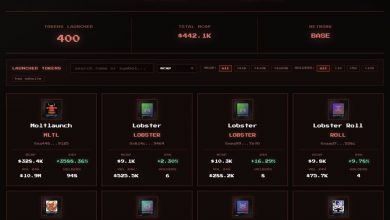
In 2025, we’re not just talking about AI as a distant trend but living in the era of AI agents. Enterprises from banking giants to nimble startups are rushing to join this new breed of autonomous digital assistants, transforming workflow automation into ways that would have seemed like science fiction just a few years ago.
What are AI Agents, and Why Now?
Think of AI agents as digital coworkers, not just scripts or bots, but autonomous entities powered by the latest advances in Large Language Models (LLMs), reasoning, and multimodal data processing. These agents don’t just automate routine tasks; they understand context, make decisions, recall previous interactions, and adapt on the fly. Unlike rigid automation tools of the past, today’s AI agents dynamically collaborate with humans and other digital systems, moving business operations at extraordinary speed and scale.
From Repetitive Tasks to Strategic Transformation
AI agents are now automating far more than data entry or scheduling. They are:
- Optimizing supply chains by identifying risks early and recommending improvements in real time.
- Enhancing customer service by significantly reducing communication costs and autonomously handling the majority of basic queries.
- Accelerating research and development processes, such as in biopharma, where cycle times have shortened and clinical reporting has become much faster thanks to agent-led automation.
- Boosting marketing and content operations, enabling organizations to dramatically cut content production costs while greatly increasing output frequency.
This scale of change redefines not just how tasks get done, but how companies compete. As agents manage cross-functional processes and coordinate with both humans and other agents, the entire notion of workflow automation evolves from patchwork scripts to intelligent, self-improving systems.
Emerging Trends in Workflow Automation for 2025
Here’s what’s driving the workflow automation revolution:
- Hyperautomation: The blending of AI, analytics, RPA, and process mining is tearing down organizational silos and enabling true end-to-end digital processes.
- Low-code/no-code democratization: AI agents, paired with easy-to-use automation tools, are empowering staff across every department—not just IT—to build their own workflows.
- Multi-agent cooperation: Agents specialize and collaborate, much like human teams, improving reliability and the ability to tackle complex, multi-step workflows.
- Security & compliance built-in: As automation expands, so does the need for zero-trust architecture, data governance, ethical controls, and real-time monitoring at every step.
Workflow Automation Across Enterprise Functions
Agentic AI systems have the ability to autonomously initiate actions and execute tasks, offering transformative potential for workflow automation across enterprise functions. Below are several high-impact use cases in Project Management, HR/IT Operations, and Finance where organizations can significantly accelerate time-to-value.
Project Management – Autonomous Project Orchestration
In project management, AI agents dynamically oversee timelines, dependencies, and resources across integrated tools such as Jira, Asana, and internal dashboards. They can automatically prioritize tasks in response to shifting deadlines or resource availability, reassign work based on team bandwidth and skillsets, and generate status reports while flagging blockers—all without manual intervention. This intelligent automation reduces project drift, accelerates delivery, and significantly lowers the need for human coordination.
HR Operations – Intelligent Employee Lifecycle Automation
AI agents are also enhancing the HR function, from automating candidate screening and interview scheduling to managing employee performance and engagement. These agents can even recommend training programs for employees based on their career goals and performance metrics, ensuring continuous skill development. In a nutshell, by AI agents integrating HRIS (Human Resources Information System), IT Provisioning Systems and internal collaboration tools, Enterprise HR functions are realizing benefits of Intelligent Employee Lifecycle Automation – the impact is enhanced employee experience, reduced manual HR /ITOps coordination, and increased compliance.
IT Operations – Autonomous self-healing
In IT operations, AI agents play a crucial role in monitoring system health and autonomously resolving common issues across infrastructure, SaaS tools, and internal platforms. These agents are capable of detecting anomalies in logs and performance metrics, automatically restarting services or rerouting traffic when needed, and escalating unresolved problems with detailed, context-rich incident reports. This approach significantly minimizes downtime, speeds up root-cause resolution, and alleviates the workload on IT teams.
Finance – Autonomous Spend Management & Forecasting
In the finance function, AI agents are leveraged to analyze spending patterns, forecast budgets, and detect anomalies across ERP systems and procurement platforms. These agents can automatically categorize transactions, reconcile expenses, predict potential budget overruns, and recommend corrective actions. Additionally, they generate real-time financial dashboards that empower decision-makers with timely insights. The overall impact includes improved financial visibility, reduced manual reconciliation efforts, and enhanced accuracy in forecasting
HR, ITOps, Finance: Cross-Functional Workflow Automation
Across functions like project management, HR, IT operations, and finance, a central AI agent can coordinate workflows seamlessly between departments. For example, when a new hire joins, the agent can trigger IT provisioning, update finance budgets, and initiate project onboarding—all with minimal human input. It orchestrates multi-system workflows, maintains audit trails and compliance logs, and adapts processes based on business rules and real-time data. This integration breaks down organizational silos, enhances operational agility, and enables scalable automation.
Workflow automation in SDLC/STLC:
Modern software development demands faster releases, higher quality, and greater predictability. While traditional SDLC and STLC processes remain essential, they often fall short of meeting the scalability and agility needed in today’s competitive tech landscape. AI agents—integrated into QA, CI/CD pipelines, and Agile tracking—are emerging as a game-changing force, especially when paired with structured delivery models like the QA Pool framework and PMO best practices.
Enhancing Quality Assurance (QA)
AI agents bring speed and intelligence to QA processes by:
- Test Case Generation & Optimization – Automatically creating executable test cases from user stories, requirements, or code changes using NLP and ML.
- Defect Prediction – Analyzing historical defect patterns, commit history, and code complexity to identify high-risk modules for targeted testing.
- QA Pool Model Support – Efficient allocation of centralized QA resources by predicting workload intensity and prioritizing tasks.
Smarter CI/CD Pipelines
In DevOps, CI/CD is the delivery engine. AI agents improve its adaptability by:
- Anomaly Detection in Pipelines – Monitoring real-time metrics like pass rates, build times, and deployment success.
- Proactive Response – Triggering alerts or automated rollbacks upon detecting issues like sudden spikes in failures or performance degradation.
- Optimized Test Execution – Selecting and running only the most relevant tests based on code changes to speed up deployments.
Agile Project Tracking and Estimation
AI-driven agile planning means:
- Effort Estimation & Sprint Planning – Predicting story points using historical data on team velocity and past sprint patterns to avoid overcommitment.
- Progress Monitoring – Assisting PMOs in tracking delivery health through automated reporting, risk assessment, and backlog optimization.
Strategic Impact
By combining AI automation with operational discipline from PMO frameworks and resource models like QA Pool:
- Release cycles become shorter without sacrificing quality.
- Testing focuses on high-risk areas, improving defect detection.
- Project management decisions are more data-driven and accurate.
- Teams gain better workload predictability and capacity planning.
The Challenges of Integrating AI Agents
While the benefits of AI agents are evident, integrating them into existing workflows comes with its challenges. Businesses must ensure that their systems are ready for the advanced capabilities of AI agents and that they can work seamlessly with other tools and platforms.
Moreover, data privacy and security concerns are paramount. As AI agents handle sensitive customer and business data, businesses need to implement robust security measures to protect this information and comply with data protection regulations.
Lastly, there’s the challenge of ensuring that employees are ready for AI-powered workflows. As businesses adopt AI agents, they must provide training and guidance to help employees transition to a new way of working.
The Road Ahead
AI agents aren’t just a technological trend. They represent a new paradigm for business value: agile, scalable, human-augmented automation built for the speed and unpredictability of modern markets.
As AI agents become teammates, learning roles, managing data, and making smart decisions, businesses who invest now will set the pace for innovation and growth in the years to come.
If you’re ready to move beyond pilot projects to enterprise-scale impact, make AI agents part of your workflow strategy today and watch your organization leap ahead in the race to digital excellence.




